Stories about Annual Report

Construction Hike for Hope: How Two AFSP Volunteers Joined Forces to Fight Suicide in Their Industry
Two AFSP volunteers, Vince Hafeli and Rob Labbe, share how they joined forces to fight suicide in the construction industry by creating Construction Hike for Hope and expanding it across the country. Now, what began as a construction-driven initiative has grown into something larger.

Through My Own Lived Experience, I've Learned We All Deserve a Support System
Everyone struggles with something in their life. Some more than others. But it’s what makes us human. To this day, I still struggle with anxiety and depression, but I’ve been able to manage it with what I’ve learned through treatment and therapy.
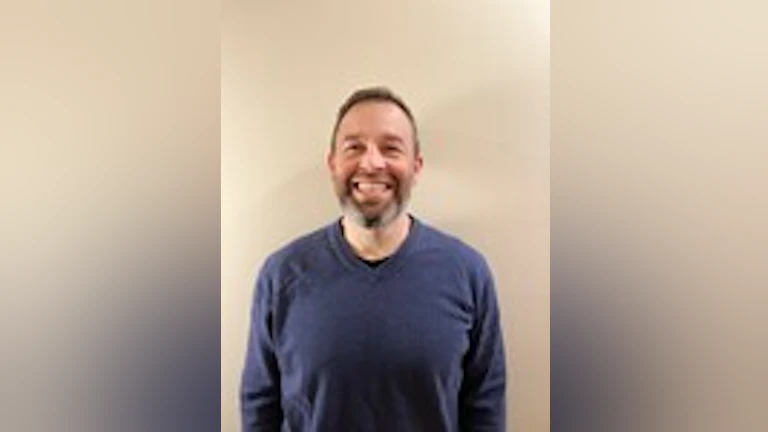
Seeking Help Is an Act of Courage
Since the heartbreaking loss of his sister, Katherine, to suicide in 2012 at the age of 37, Dave Thompson has transformed his grief into advocacy for mental health awareness and suicide prevention.
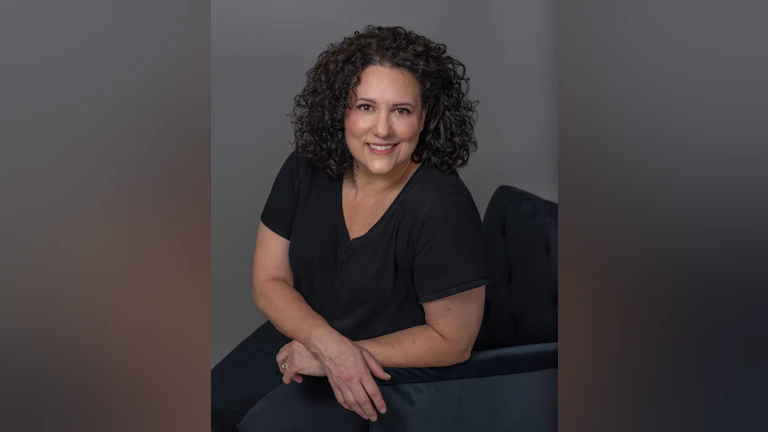
Through Volunteering, I Gave Myself Permission to Keep Living
In 2018, Karen Carreira’s teenage son Nathan died by suicide two weeks after his 15th birthday. She has since leveraged her 25-year career in human services to become a proud proponent of education and advocacy for mental health awareness and suicide prevention, with a particular focus on youth mental health.
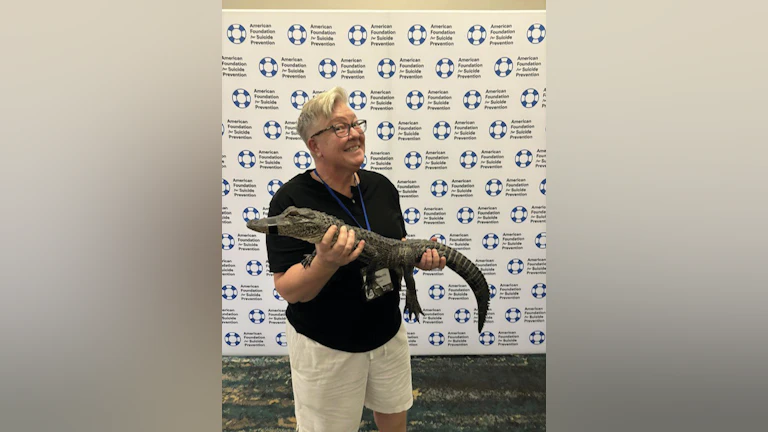
I Have Learned That My Voice Has Power
Coming from a deeply religious family involved in mission work and realizing at the age of 11 that she was gay and would have to keep it a secret or try to “pray it away,” Kris Williams knows what it’s like to grow up feeling different.
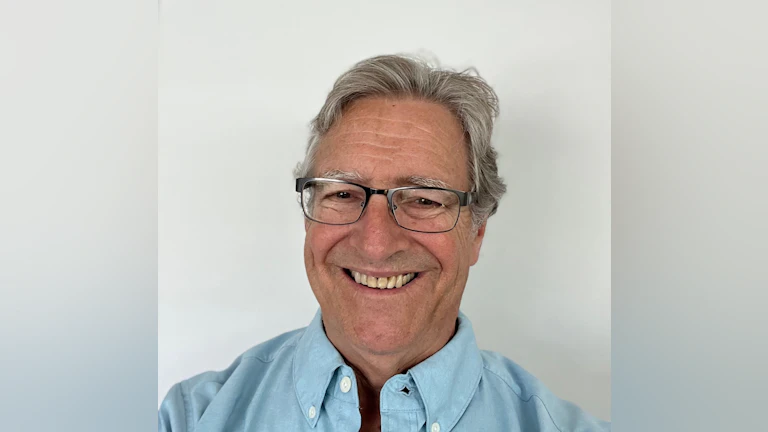
Julie’s Spirit Is With Me in My Advocacy
Rick Townsend is a psychologist and professor who has long been active in mental health advocacy. Julia, his daughter, experienced a severe episode of depression that resulted in her suicide. Six years later, in addition to bringing more Community Walks to his area, Rick has become a Volunteer Advocate for AFSP.
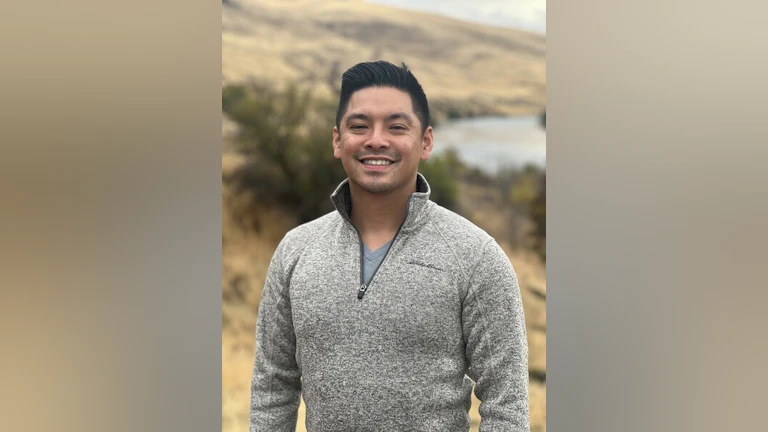
As a Suicide Attempt Survivor, I Know There is Hope Out There
In 2018, Vuong Tran was living in one of the most beautiful cities in America — San Diego — but experiencing what felt like an impossibly dark season of depression. After surviving a suicide attempt and spending five days in a psychiatric hospital, Vuong found hope in community and in therapy.
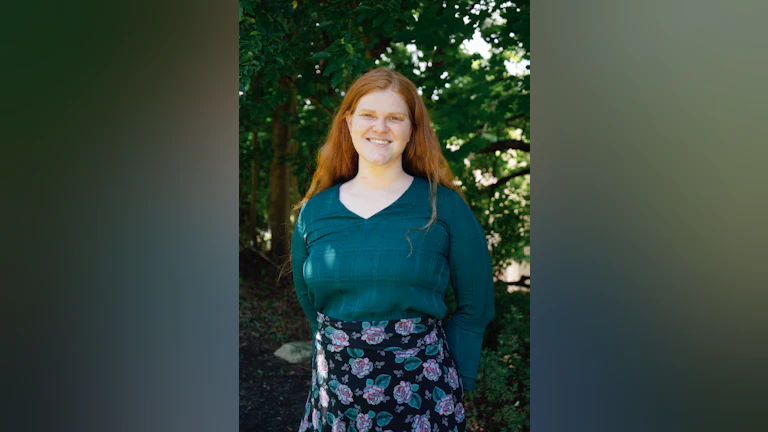
We All Have the Opportunity to Make a Positive Impact
As someone who lives with suicidal ideation and is a survivor of loss, Anne is now a longtime AFSP volunteer: a member of the Long Island Chapter board who has contributed in many ways over the years, including spearheading the development of the chapter’s first Campus Walk.
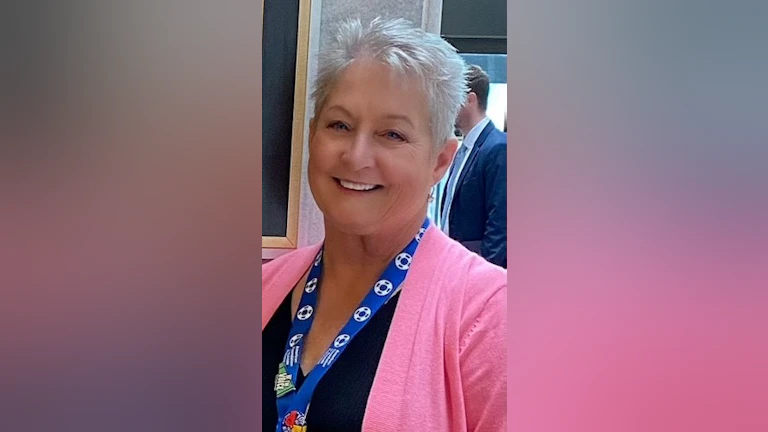
You Can Bring Hope to So Many Just by Listening
Candi Morris found great support through her local AFSP chapter following the death of her father in 2015. She became involved as a volunteer beginning in 2019, and quickly found herself leading the effort to organize the Gainesville Community Walk.
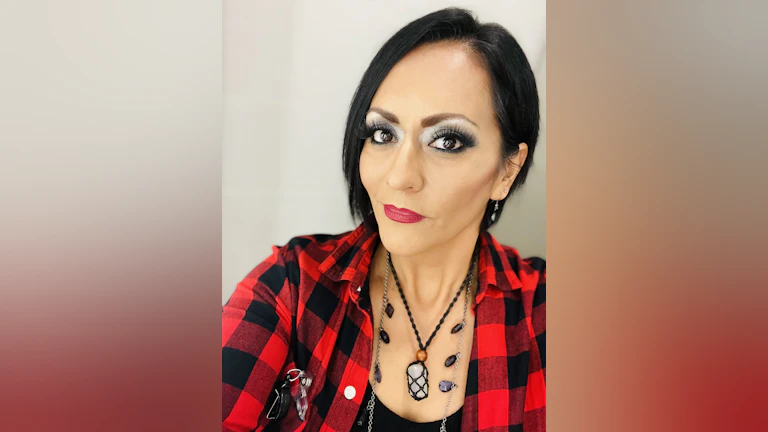
What My Daughter Taught Me: Be a Champion of Your Mental Health
Ericka Llerena first found her way to the National Capital Area Chapter after her 16-year-old daughter came to her the night before Mother’s Day, telling her she didn’t want to be alive anymore. Finding resources, support and comfort for both herself and her daughter, Ericka became involved in chapter events.
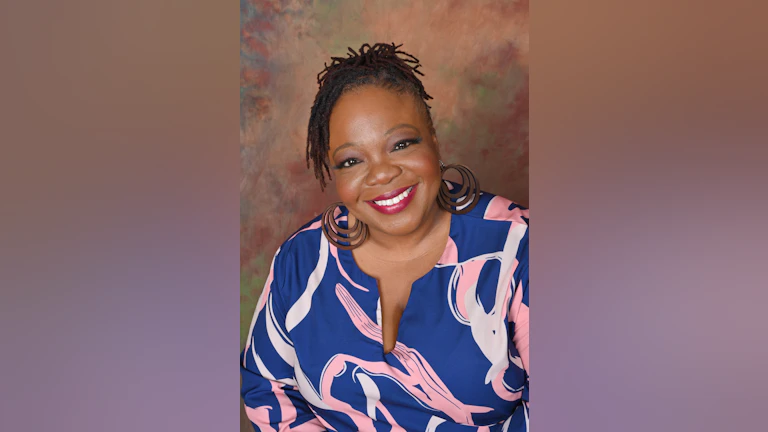
It Takes Courage to Share Your Story
LaKeitha Phillips was inspired to volunteer with AFSP, knowing from her own lived experience how greatly the Black community has been impacted by suicide, and wanting to see more minority representation in the crowd at her local Out of the Darkness Community Walk.
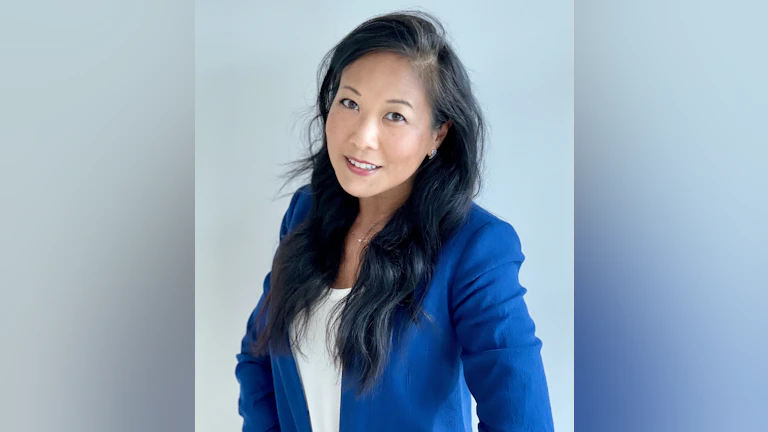
Life Can Go On After Heartbreaking Loss
Karen Ng started volunteering with AFSP following the death of her younger sister Karine in 2018. After attending a Survivor Day event and feeling touched by how the event embraced survivors of suicide loss, she formed a Walks fundraising team to invoke the joyful spirit of her sister.
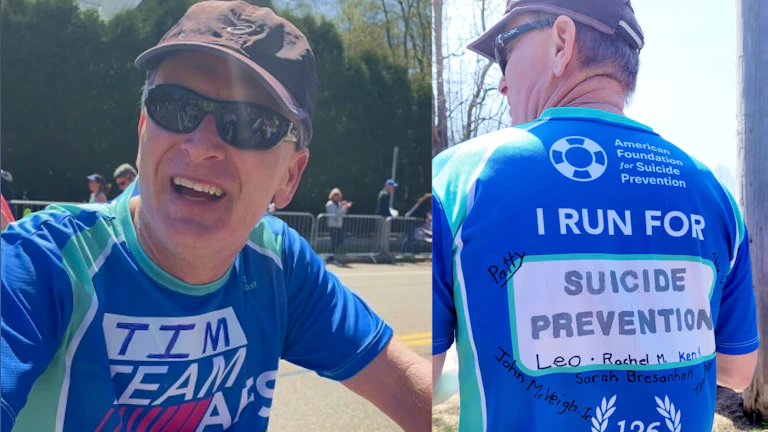
OSHA and AFSP Team Up: Bringing Suicide Prevention to the Workplace
Timothy Irving is the deputy director, directorate of construction OSHA, which ensures safe working conditions for America's workers. He was a driving force in creating an alliance between OSHA and AFSP to bring suicide prevention to the workplace.
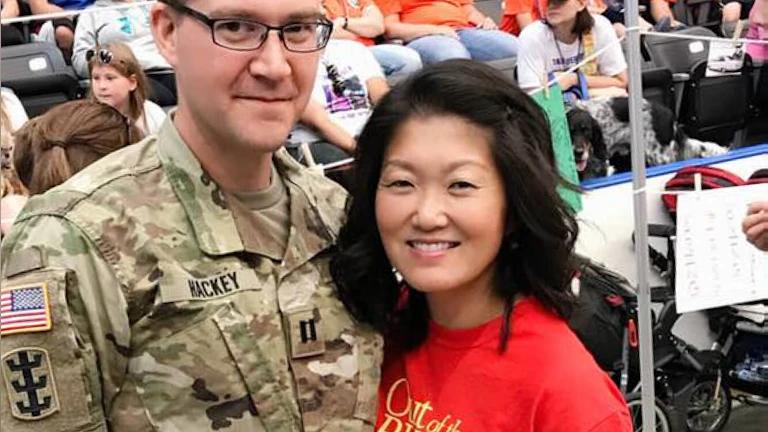
Building Support for the 988 Lifeline in North Dakota
Sarah had lived with anxiety, depression, and thoughts of suicide since she was 12, and attempted to take her life soon after graduating college. Inspired by her first Out of the Darkness Walk, she began volunteering with AFSP.
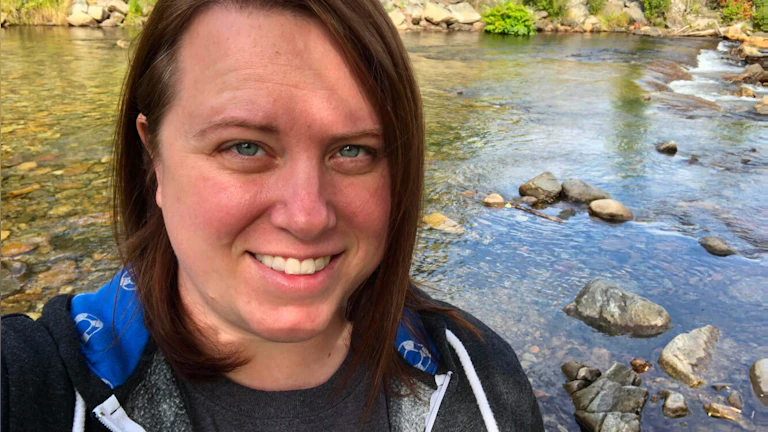
By Sharing My "Ugly Truths," I helped Pass Lifesaving Legislation
Angela Perry has been instrumental in Oregon’s advocacy efforts for the past several years, helping to lead successful efforts on bills related to support for the 988 Suicide & Crisis Lifeline, as well as for suicide prevention training for mental health professionals.
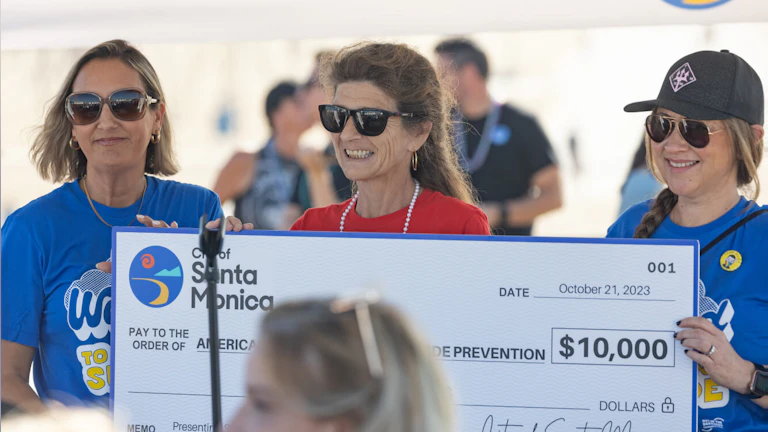
Losing a Child to Suicide Rattled My Beliefs. Connecting With Others Brought Solace.
Bridget McCarthy lost her son Riley in 2020, two weeks after his 16th birthday, during the height of lockdown. Devastated by Riley’s death and determined to make a difference, Bridget organized her own Walk with homemade signs and sponsorship from 16 local businesses, raising $13,655 for AFSP.
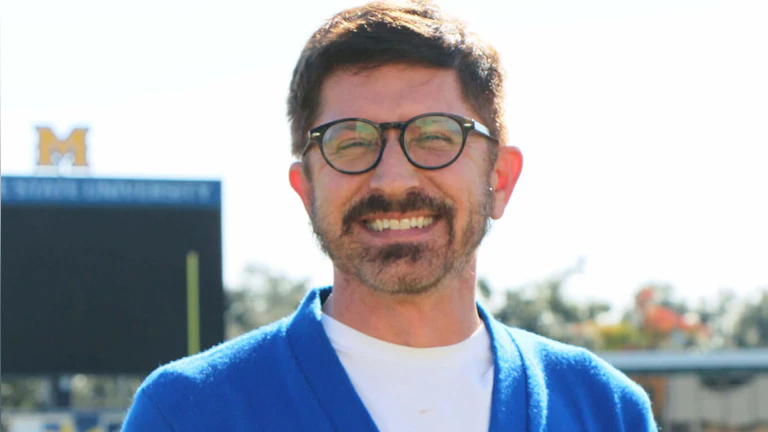
Uniting the Community: Strengthening Suicide Prevention in Southwest Louisiana
Kevin Yaudes teaches undergraduate psychology and graduate counseling at McNeese State University in Lake Charles, Louisiana. After recognizing a need for suicide prevention in his community, Kevin connected with AFSP. Before he knew it, he was chairing the Southwest Louisiana Walk.
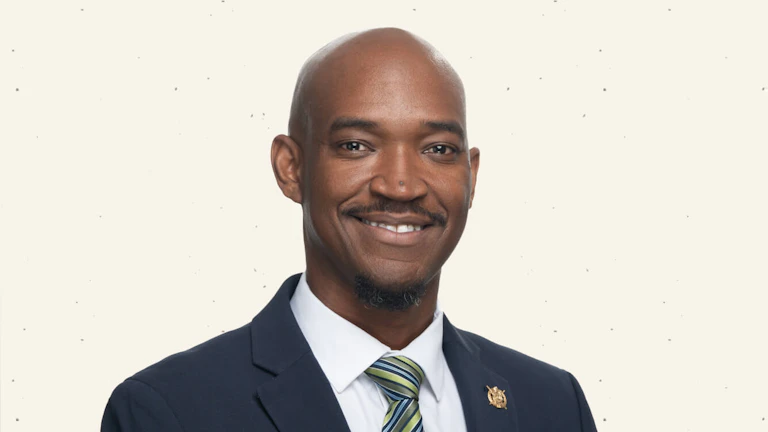
Fulfilling a Calling: Why I Advocate for Suicide Prevention in Black Communities
As an alumnus and member of Omega Psi Phi Fraternity, Inc. — the first international fraternal organization to be founded on a historically Black college campus — Keon has helped forge a partnership between Omega Psi Phi and AFSP, which aims to prioritize mental health and suicide prevention in Black communities.
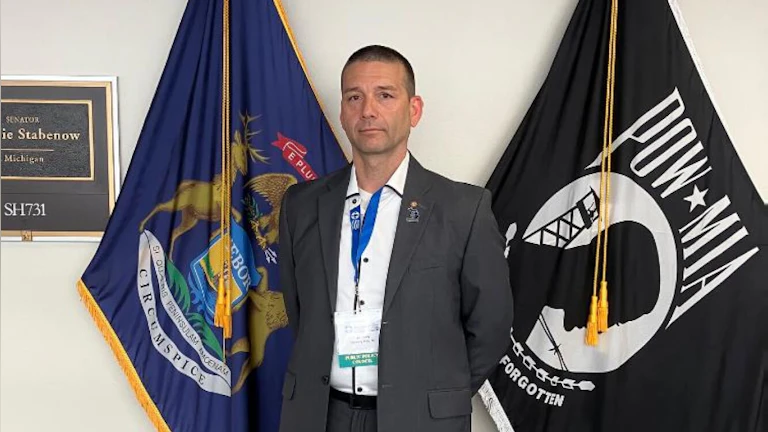
As a Veteran, I Know the Importance of Suicide Prevention Efforts
A combat Veteran having served in the United States Marine Corps for nearly 14 years, Ian Perry was aware of fellow service members taking their own lives. Now, as a volunteer with AFSP's Michigan Chapter, Ian devotes much of his energy and focus to military and firearms outreach.
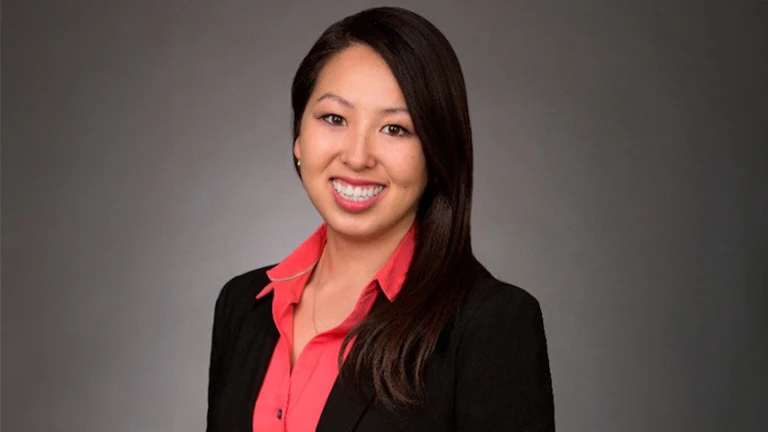
Through Education, We Can Help Talk Away the Dark
Darlene Tzou first heard about AFSP from a colleague who was raising money for an Out of the Darkness Walk in memory of her son. Darlene started out as a volunteer, and now serves on the National Capital Area Chapter’s board as the Education Chair, helping to lead local suicide prevention education efforts in her area.
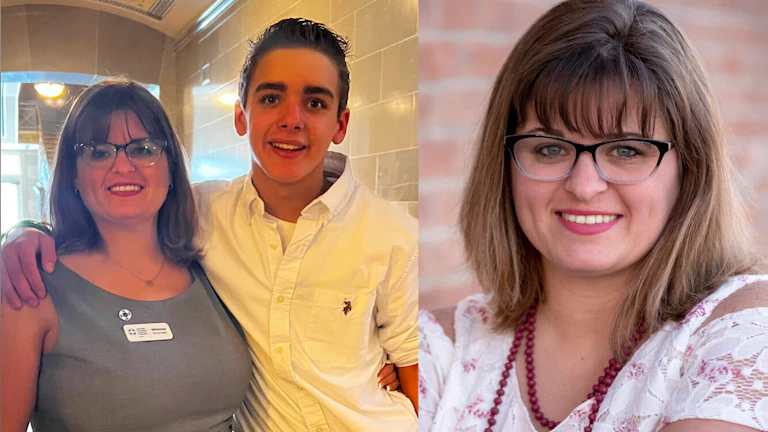
"I Just Can't Do It Anymore, Mom"
Whitney Shumway's main “Why” for volunteering is to support her son Trent, who expressed suicidal feelings as early as third grade — and who now, at 15, often joins his mom in volunteering for AFSP, gaining strength through community and the incredible example set by his mother.
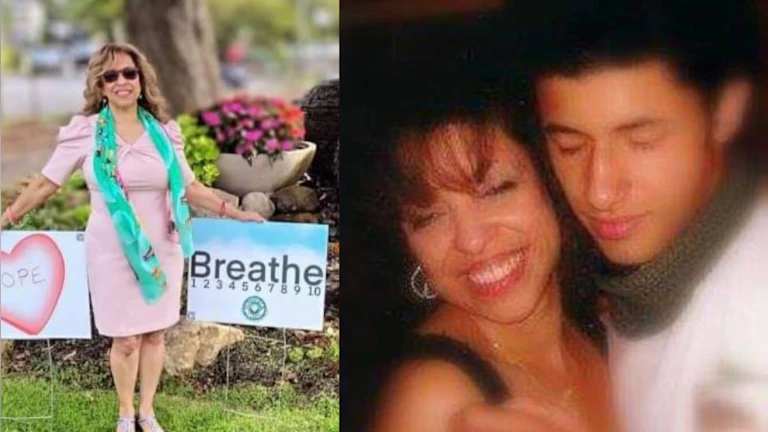
Bringing Hope to Other Loss Survivors Has Helped Me Heal
In 2008, at the age of 20, Judy Battista’s son Daniel died by suicide. Met with love and support from her community, she was invited to an Out of the Darkness Walk. Later that year, she attended her first International Survivors of Suicide Loss Day (also known as Survivor Day) event and began volunteering for AFSP.
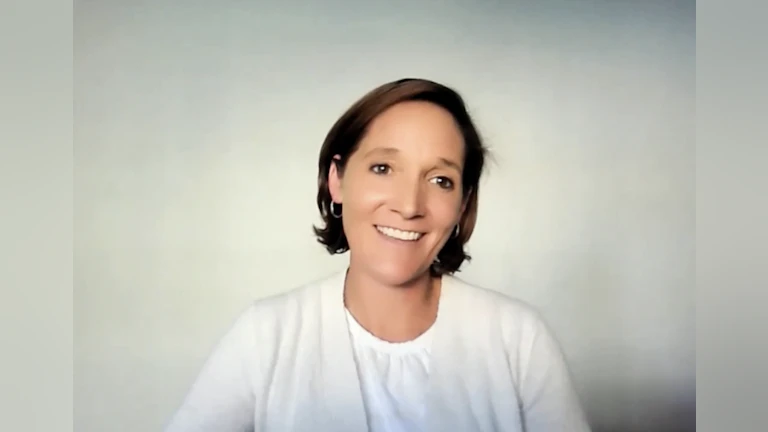
Training to Become a Volunteer Advocate for Suicide Prevention Felt Like a Gift
In January of 2016, I lost my 18-year-old nephew to suicide. The loss was devastating. Being an AFSP Volunteer Advocate has helped me process my own personal experiences, and be braver in standing up for my own needs, those of my family, our community, and all humans. We’re all in this together.
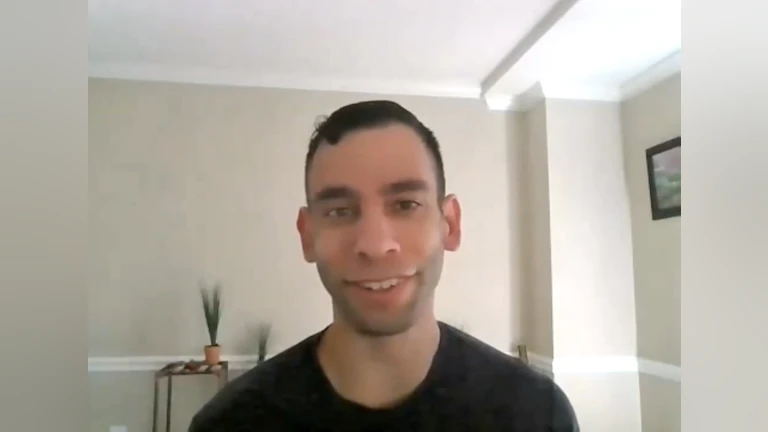
Bringing Hope and Suicide Prevention Resources to Veterans and Military Members
To me, AFSP is the embodiment of effective leadership. Every volunteer can use their strengths and contribute in whatever capacity suits them. It’s a privilege to help Veterans and military members connect and engage openly about mental health.
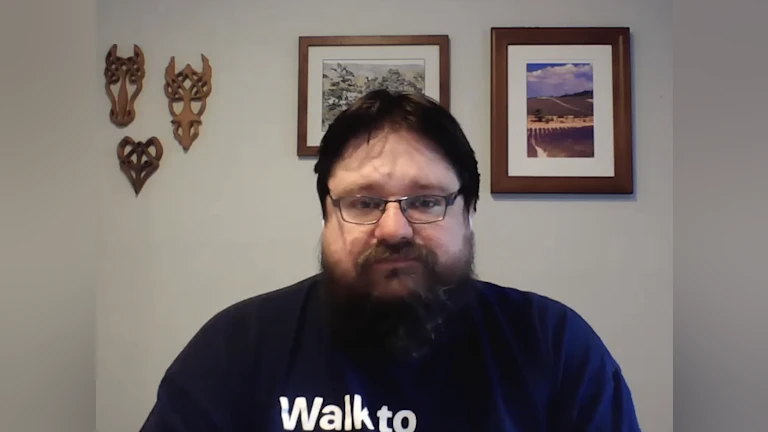
Navigating Out of the Darkness
I think a big misconception is that those with lived experience are selfish or weak. We are neither. Mental health can be like a labyrinth, and it takes a lot to navigate out of the darkness.
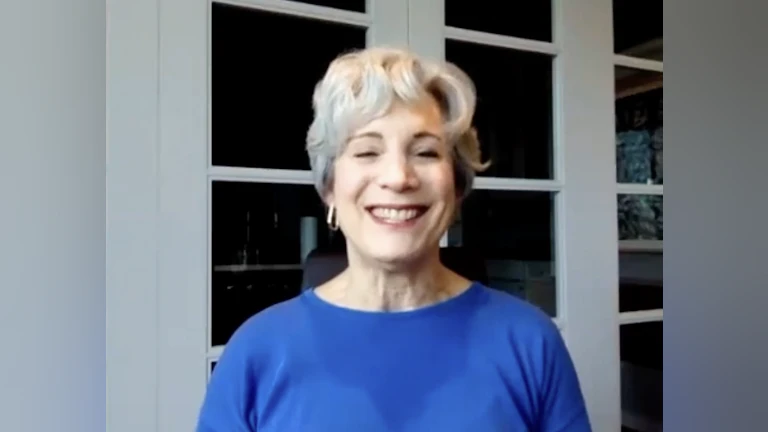
I Am Still Elana's Mom
Like many people who are suicide loss survivors or who have lived experience, I find that devoting myself to suicide prevention work sustains me. I continue my connection with Elana in everything I do for AFSP. I am still Elana’s mom.
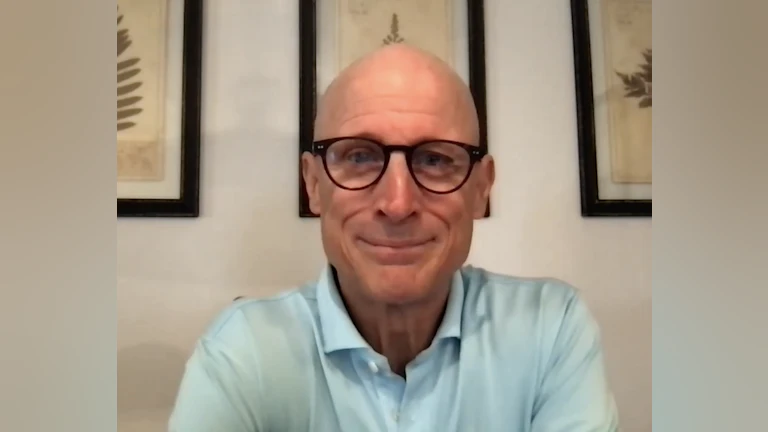
Finding Strength Through Connection As a Healing Conversations Coordinator
My wife Alice and I had known each other for 35 years and been married for 33 years. Losing her to suicide in 2016 was a terrible, traumatic experience. It was the people I met through AFSP who convinced me to become involved as a volunteer. I realized that we gain more strength through connection.

Talk Saves Lives: How I’m Educating the Next Generation of Nurses
My interest in helping those with mental health challenges originated when I was working as a Registered Nurse in an inpatient psychiatric unit. I worked with families who struggled to understand the dynamics of their loved ones who were experiencing distress.
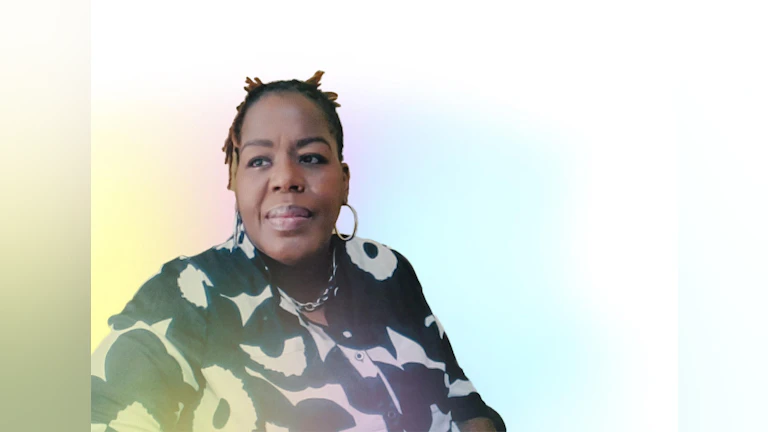
Changing the Conversation on Suicide in the Black Community
I am a Black woman, and in our community, suicide is largely taboo. It is time for that mindset to be eradicated. I am doing my best to bring about the conversation of suicide prevention in our untapped populations, especially those of color.
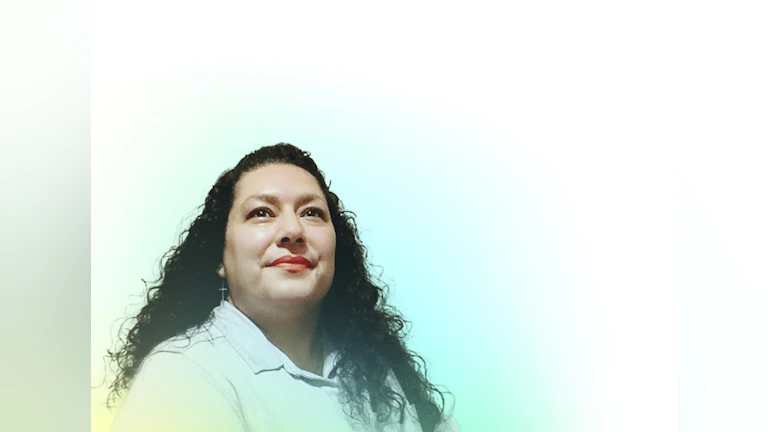
Delivering Talk Saves Lives en Español
Mental health and suicide are topics that are not spoken about enough in the Latinx community, though suicide has always impacted us. It’s exciting to me that AFSP’s Talk Saves Lives education program is available in Spanish.
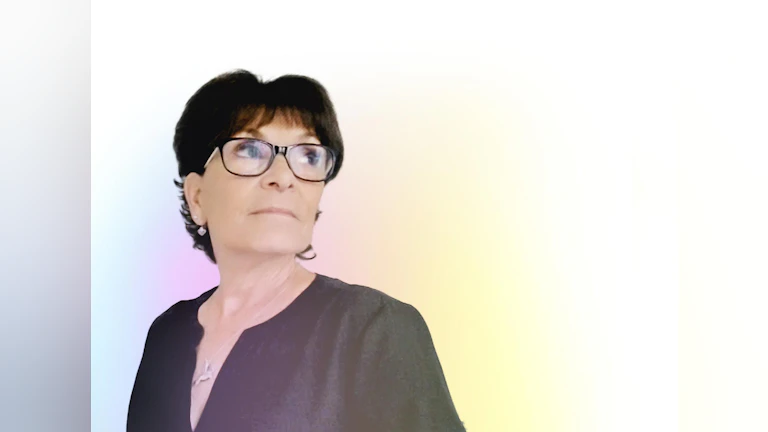
Finding Strength in AFSP’s Overnight Community
I would like to see a world without suicide, in which everyone takes care of their mental health, and all people support one another and are kind to each other. Everyone should have access to the mental health support and services that they need.
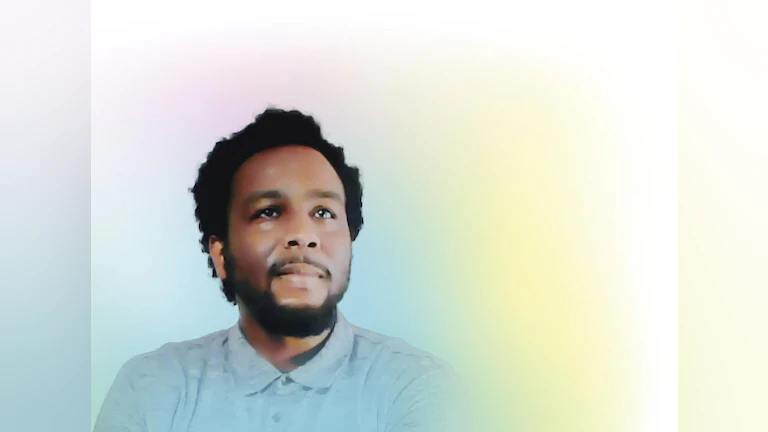
I Walk for Atif and a World Without Suicide
When I envision my hope for the future, stigma around mental health will be a thing of the past. I plan to participate in the healing of our world by being transparent, and teaching others what I’ve learned through my times of struggle and triumph.
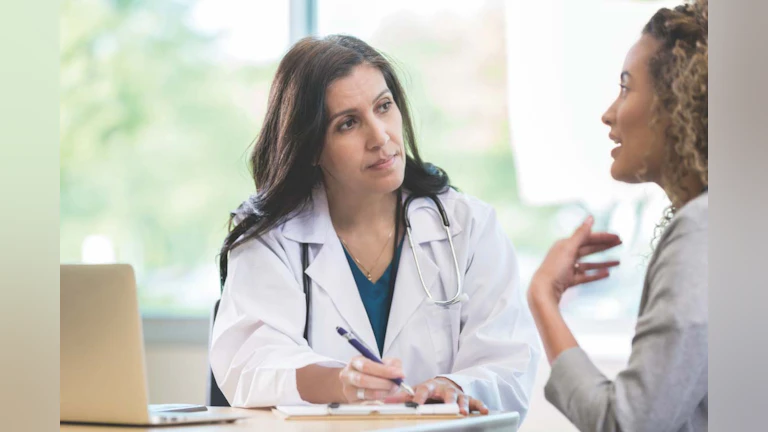
Our Nationwide Initiative to Reduce the Annual Rate of Suicide in the U.S. 20% by 2025
Using data that specify who we are losing to suicide and how we are losing them, AFSP’s board of expert advisors has honed a comprehensive plan to save lives.
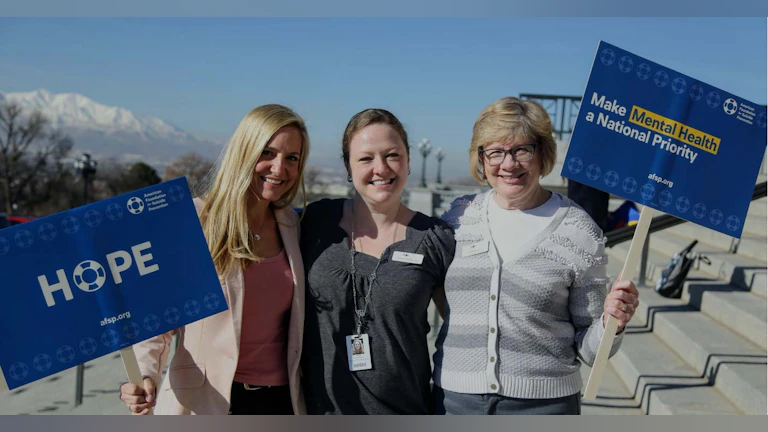
Speaking Out in the Fight to Stop Suicide
Thanks to the hard work of our volunteers and staff, this past year we saw the successful passage of five federal bills and 27 state bills in support of our top public policy priorities.
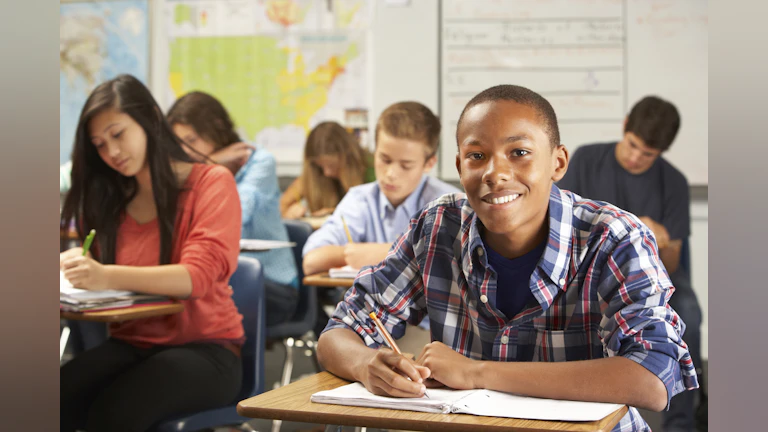
Changing Attitudes, Culture and Behavior Through Education
Our chapters more than met the challenge to #KeepGoing in making our education programs available throughout the pandemic. Despite the outbreak of COVID-19, we quickly adapted our education programs from in-person to virtual presentations, ensuring that we are still creating a culture that is smart about mental health.
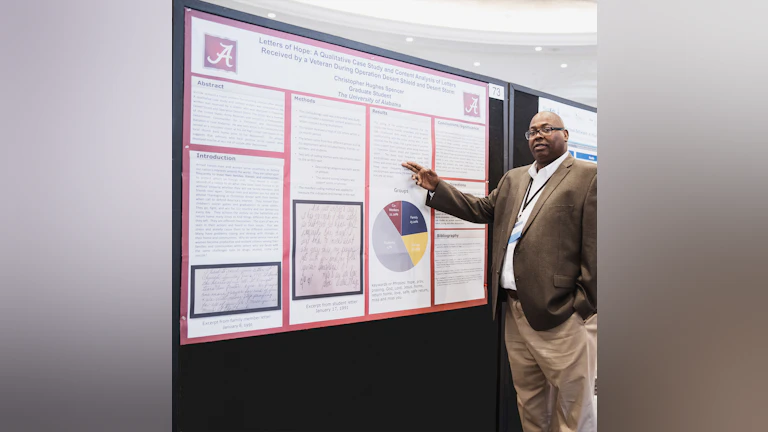
Learning About How to Save Lives
AFSP was founded as a research organization dedicated to exploring how to save lives. Over 30 years later, we remain the largest private funder of suicide prevention research, shaping suicide prevention strategies around the world.
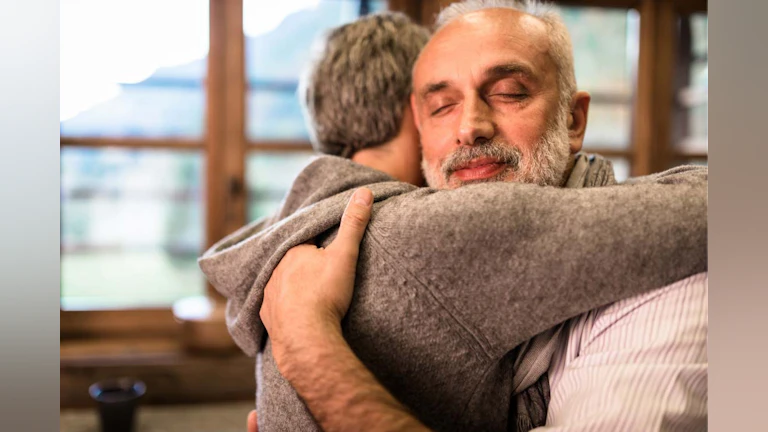
Being There for Those Who’ve Lost Someone
Our chapters in every state are a testament to the fact that no one who has lost someone to suicide needs to feel alone. In our local communities, there are people who do understand – and through our Loss & Healing programs, they are ready to provide resources, support and understanding to help others heal.
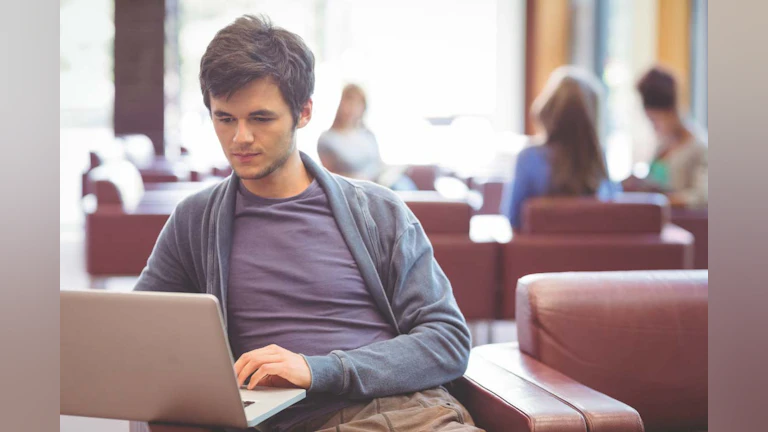
Connecting People to Help
People in need of help are not always ready to connect to mental health services. AFSP’s Interactive Screening Program (ISP) provides individual members of school and workplace communities with a safe and anonymous way to connect with the resources and support they need.
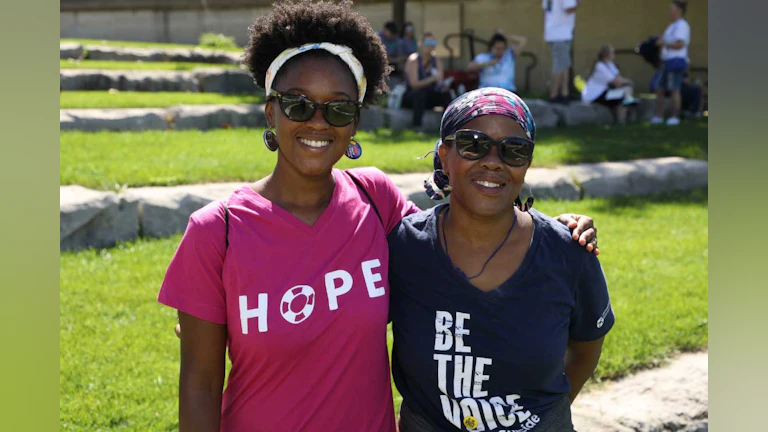
Walking #TogetherToFightSuicide
This year, following the outbreak of COVID-19, our amazing volunteers and staff were determined to stay connected to one another. Our participants came #TogetherToFightSuicide as we transformed the remaining Walks into a variety of physically distanced creative activities known as Out of the Darkness Experiences.
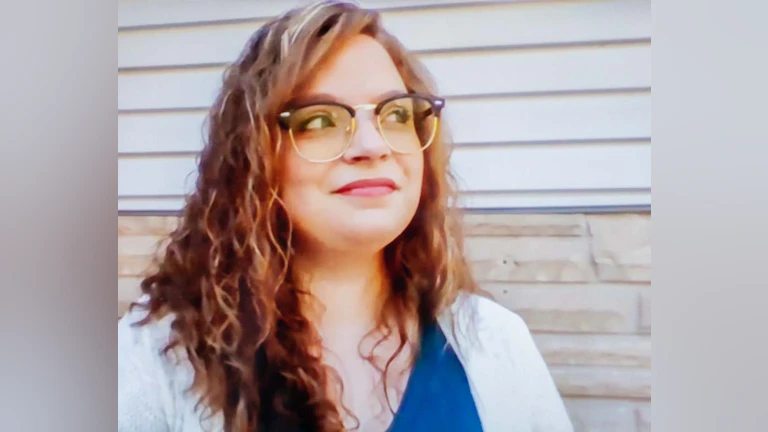
It Was Okay to Say It
I got involved with the American Foundation for Suicide Prevention in 2011 after I lost my dad to suicide. At first, I didn’t use the word suicide when I was telling people that my dad had passed away. But shortly after that, I realized there’s nothing to be ashamed of.
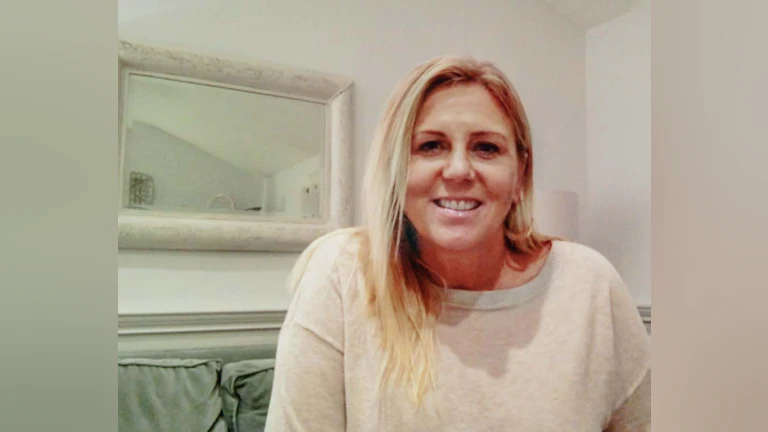
My Sister Knew We Needed Some Help
I attended Survivor Day for the first time the following year. I expected everyone to be crying and sad. But I loved it. I understood instantly that I was in a room with people who knew exactly how I felt.
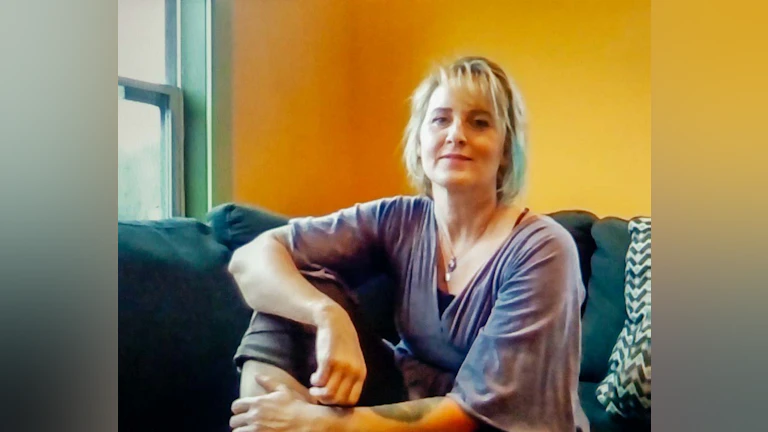
I Had Lost Five Students to Suicide
There are still taboos that exist for some people in our community where you don’t really talk about mental health or suicide. AFSP’s community-based Talk Saves Lives program (for adults 18+) is another way of engaging people.
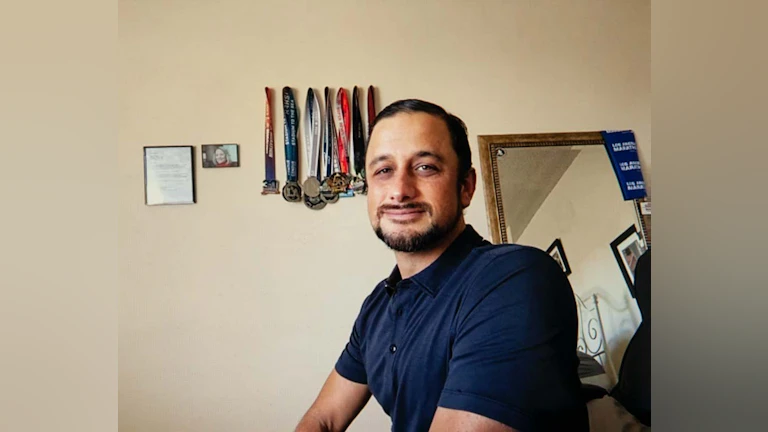
Running in Support of Suicide Prevention
Running with my friends’ pictures on my back, and crossing the finish line, was the most empowering experience I had ever been a part of. Running with our Team AFSP gear on, we got lots of positive comments like, “Thanks for what you’re doing!”
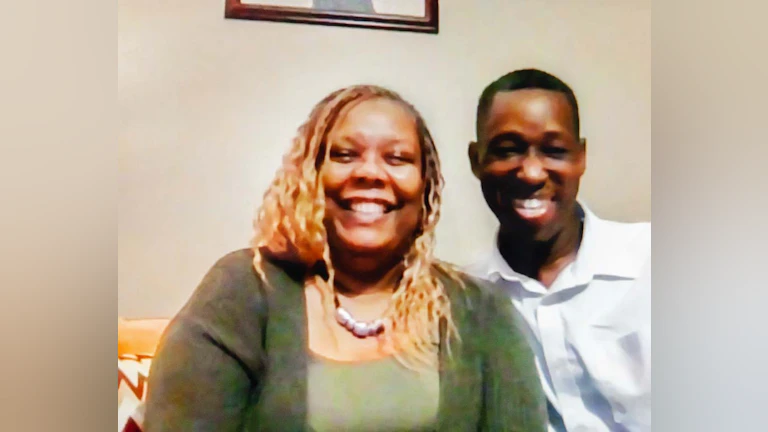
Boots on the Ground: Advocating for Suicide Prevention in the Military, and Beyond
Sometimes it’s hard for someone who’s not a part of the military to understand the challenges military service members and their families have. I wanted to see more education made available to service members as well as their families.
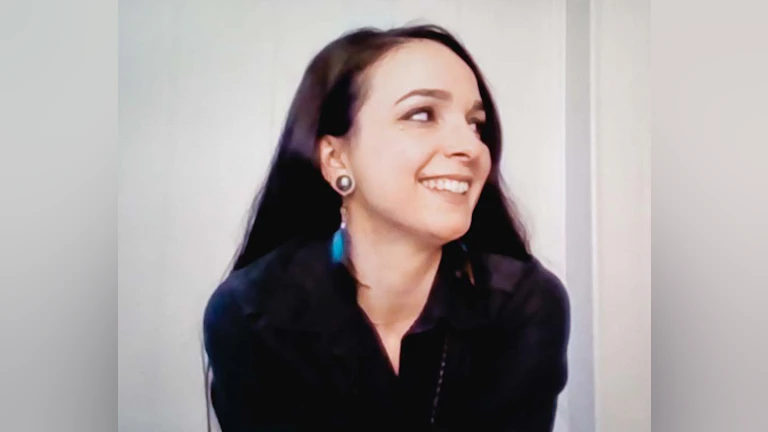
Walking to Heal My Family
It wasn’t until I got to college that I finally gave myself the opportunity to heal, and learn more. I helped bring our first Out of the Darkness Campus Walk to my college in 2011.
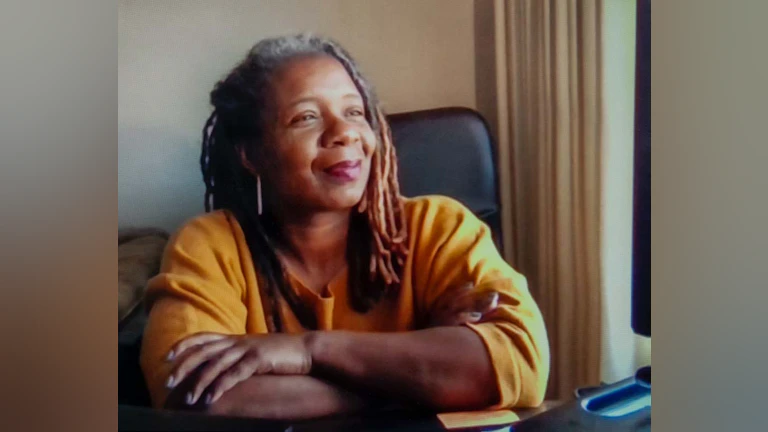
We Can Talk About It
What first brought me to AFSP was the support it provides within the community. AFSP has done a really good job of bringing its education trainings to churches, and community centers, and allowing a space where people can come in and learn about mental health and suicide prevention.
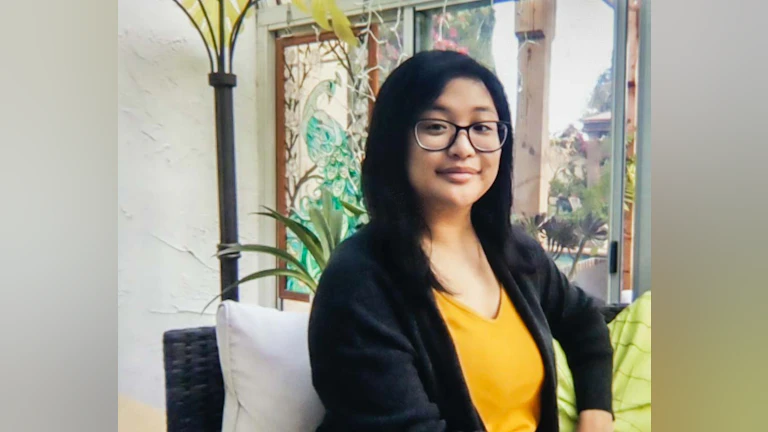
Bringing Mental Health to My College Campus
I first got involved with AFSP in college through volunteering for the San Francisco Community Walk. My partner lost his best friend to suicide and I wanted to find ways to support him.
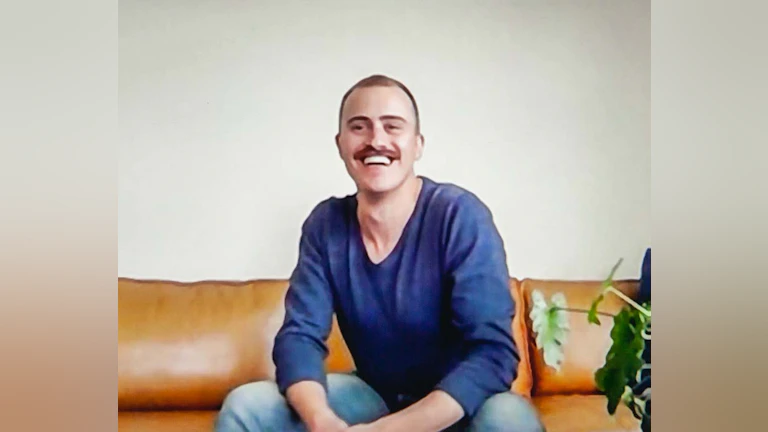
Bringing Understanding to Communities Through the Research Connection Program
Suicide prevention is important to me because I want to be a voice for people who don’t have that voice.
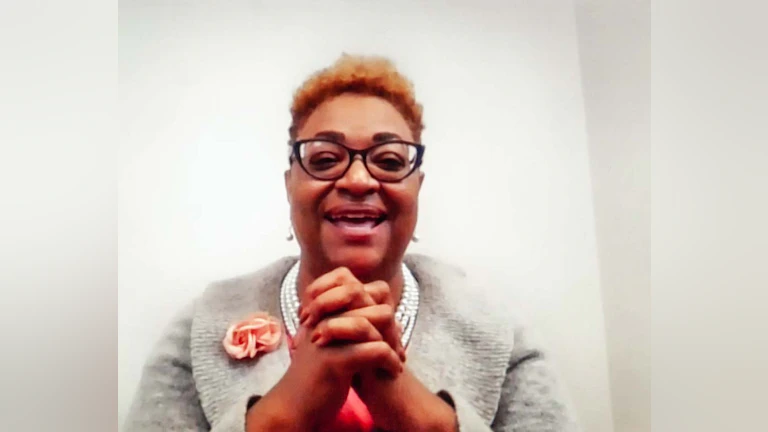
We’re Doing This!
In the midst of our journey toward providing suicide safer care, I had the opportunity to learn about AFSP’s Project 2025, and got really excited because here was this national effort to reduce the suicide rate in our country 20% by the year 2025, and one of its four main areas was healthcare systems.

Our 2020 Annual Report: How We #KeepGoing
Our 2020 Annual Report shines a spotlight on all the critical work we accomplished for our mission this past fiscal year, both before and during the rise of COVID-19.
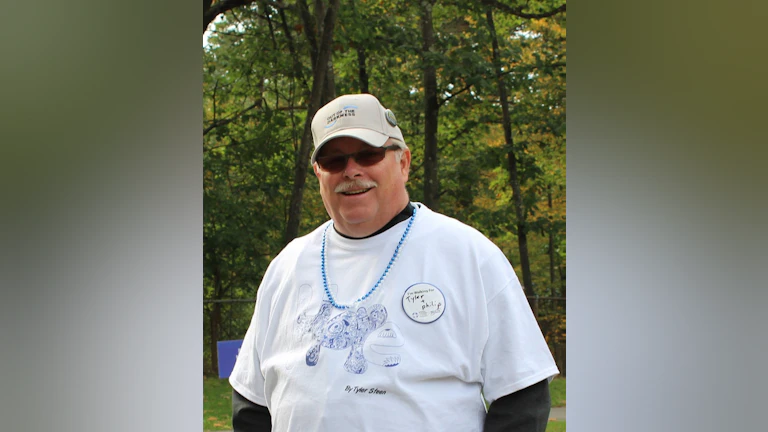
“I’m Still Healing.”
To learn more about our exciting work and read other Volunteer Spotlight Stories, see our 2019 Annual Report.
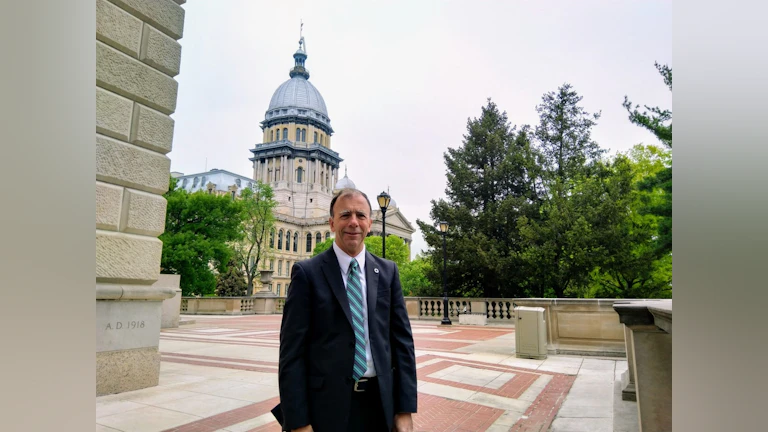
AFSP Advocacy: Transforming Hope into Reality
To learn more about our exciting work and read other Volunteer Spotlight Stories, see our 2019 Annual Report.
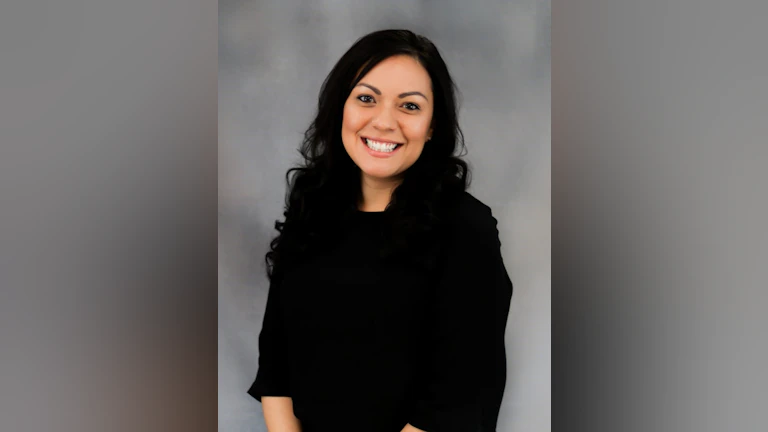
Education is Power
To learn more about our exciting work and read other Volunteer Spotlight Stories, see our 2019 Annual Report.
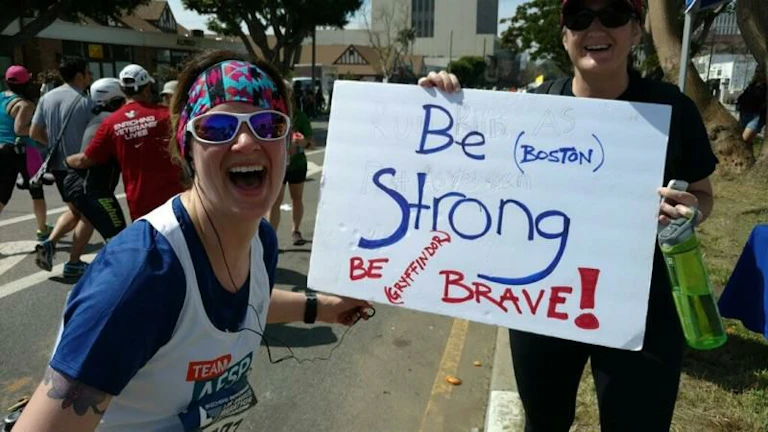
Running for My Son
Lori Tanner, a volunteer from Wyoming, took part in Team AFSP’s L.A. Marathon event in 2017, raising funds and awareness while finding meaning in the loss of her son.
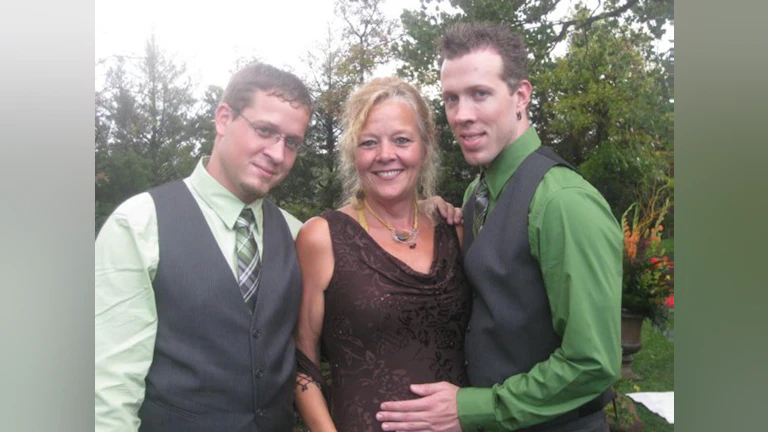
Making Suicide Prevention a Priority in the LGBTQ+ Community
This past April, AFSP’s Eastern Missouri Chapter hosted Stronger Communities: LGBTQ+ Suicide Prevention.
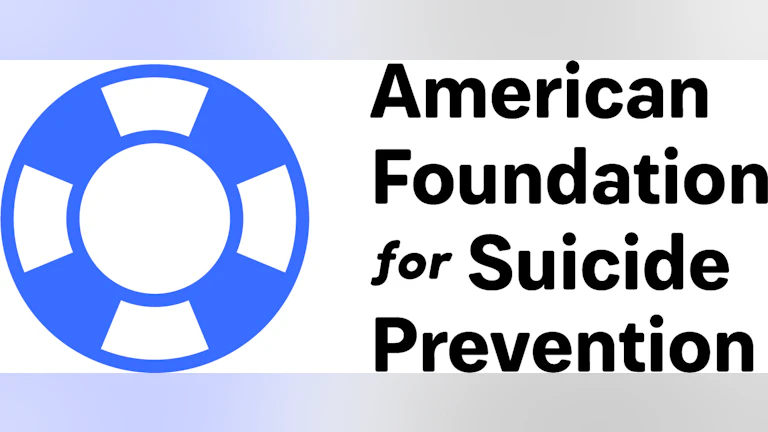
A Tale of Two Researchers: Safety Planning Intervention to Reduce Short-Term Risk
Imagine if there were a simple, personalized plan that helped people deal with suicidal thoughts and behavior as they emerged…so they could save their lives, rather than take their lives.